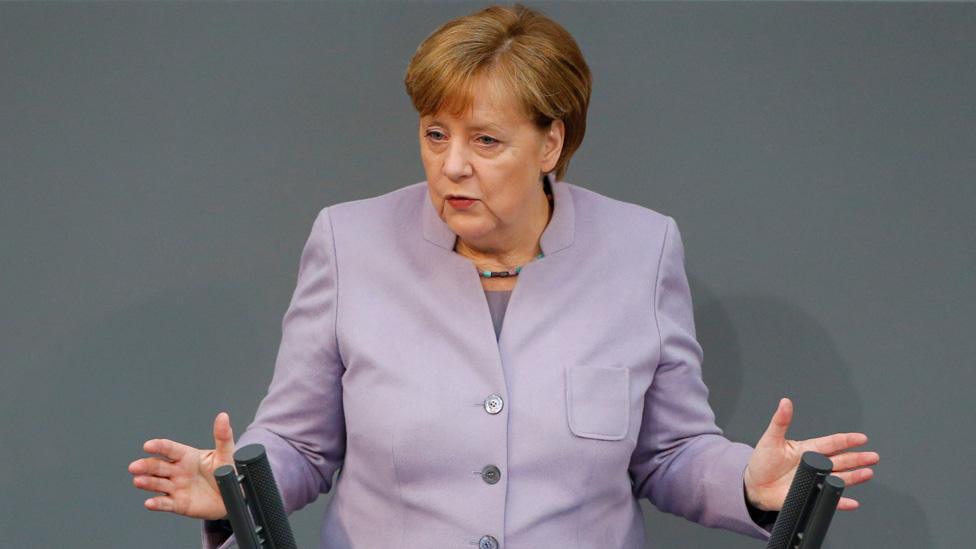Brexit: Donald Tusk says EU-27 must remain united
- Published
- comments
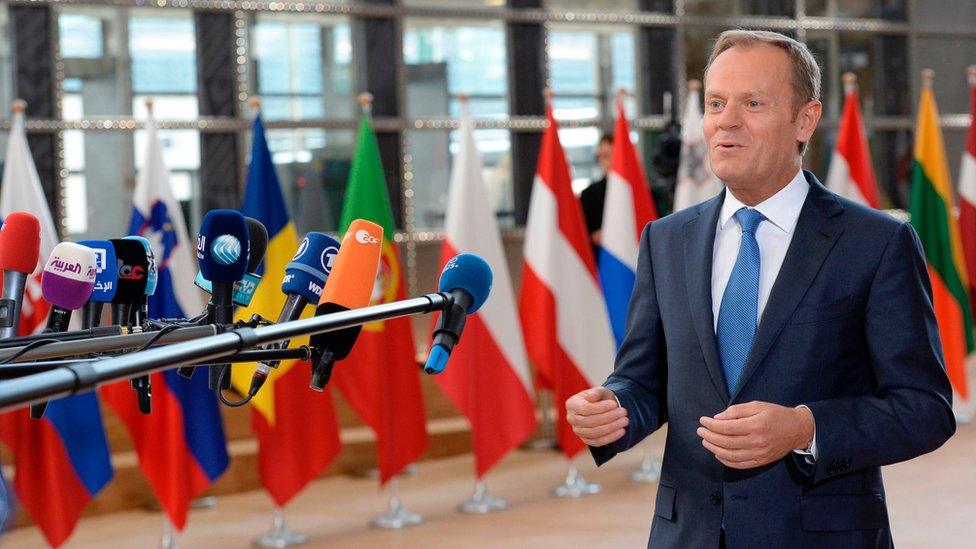
Donald Tusk is chairing the talks between the 27 remaining EU members in Brussels
European Council President Donald Tusk has said that the 27 European Union countries meeting in Brussels to discuss Brexit must remain united.
Mr Tusk, who will chair the special summit, said he had strong support from all the EU institutions as well as the 27 remaining states.
The UK is not taking part in the talks.
The EU leaders are meeting to finalise guidelines ahead of discussions with the UK on both the "divorce deal" and its future relationship with the EU.
The EU will insist that progress must be made in talks on separating the UK from the EU before any discussions can begin about future trade relations.
Official talks between London and the EU will not begin until after the UK general election on 8 June.
Arriving for the talks on Saturday morning, Mr Tusk told reporters: "We need to remain united as EU-27. It is only then that we will be able to conclude the negotiations, which means that our unity is also in the UK's interest."
In an earlier letter to leaders of the EU-27, external, he wrote that progress on "people, money and Ireland" must come before negotiations on the EU's future relationship with the UK.
The UK government has said it does not want to delay talks on future trade relations.
The summit brings together the heads of state or government of the EU-27 countries to discuss the draft guidelines, external for Brexit negotiations issued on 31 March.
The people who will negotiate Brexit
French President Francois Hollande, arriving at the talks, said there would inevitably be "a price and a cost for the UK - it's the choice that was made".
"We must not be punitive, but at the same time it's clear that Europe knows how to defend its interests, and that Britain the UK will have a less good position tomorrow outside the EU than today in the EU."
Luxembourg's Prime Minister Xavier Bettel said that there needed to be a solution found with Britain that was a "level playing field" with "no cherry picking" - but "we must not punish" Britain.
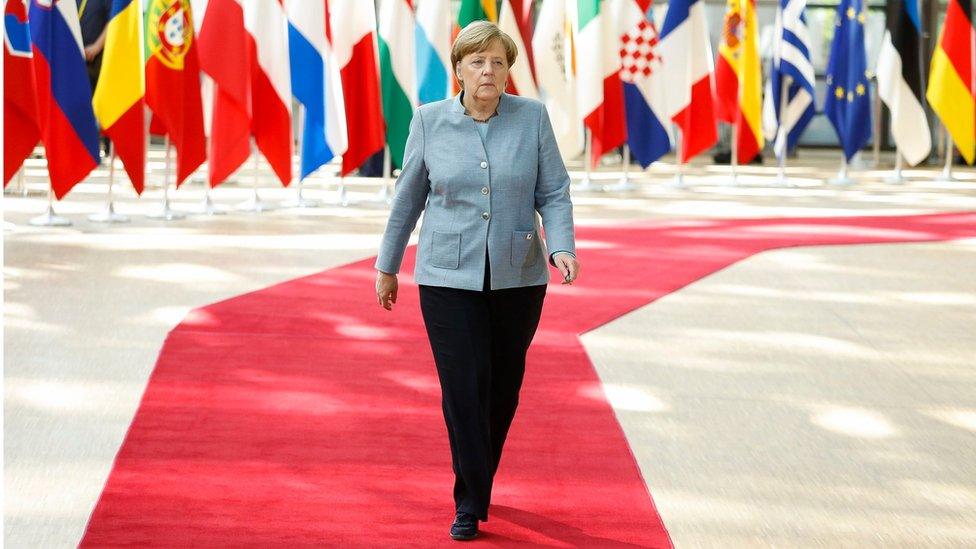
Angela Merkel is up for re-election in September
Mr Tusk's letter - calling for a "phased" approach to Brexit - echoed German Chancellor Angela Merkel's priorities, which she set out on Thursday.
"Before discussing our future, we must first sort out our past," Mr Tusk said, listing three priorities:
On EU citizens living in the UK, he called for "effective, enforceable, non-discriminatory and comprehensive" guarantees
The UK must fulfil all its financial obligations agreed as an EU member state
A deal must be reached "to avoid a hard border between the Republic of Ireland and Northern Ireland"
"We will not discuss our future relations with the UK until we have achieved sufficient progress on the main issues relating to the UK's withdrawal from the EU," he said.
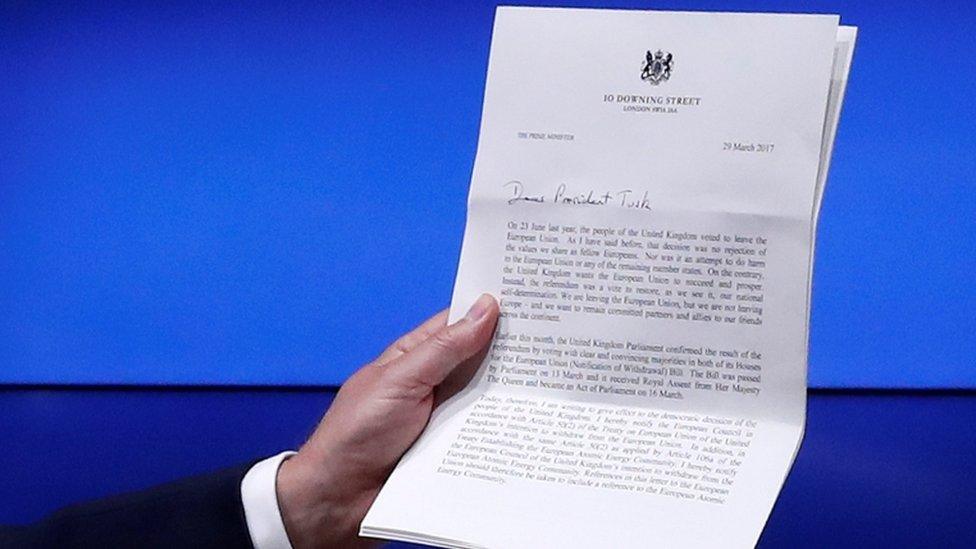
Mr Tusk received official notice of the UK's intention to leave the EU at the end of March
Meanwhile, German Finance Minister Wolfgang Schaeuble said the UK would not have advantages over 27 EU members once Brexit negotiations were concluded.
"There is no free lunch. Britons must know that," he told Germany's Funke Media Group.
EU officials estimate that the UK faces a bill of €60bn (£51bn; $65bn) because of EU budget rules. UK politicians have said the government will not pay a sum of that size.
Reports say Irish Prime Minister (Taoiseach) Enda Kenny will also ask his EU partners to back the idea of Northern Ireland automatically joining the EU if the province's people vote to unite with the Republic.
The UK Brexit Secretary, David Davis, has said that in the event of such a vote, Northern Ireland could become "part of an existing EU member state".

Brexit timetable:
29 April - EU leaders (excluding the UK) meet in Brussels to adopt Brexit negotiating guidelines
7 May - French voters decide between Emmanuel Macron and Marine Le Pen as their next president
8 June - UK parliamentary election - Brexit talks to start soon after the vote
24 September - German parliamentary election, with Mrs Merkel seeking a fourth term
29 March 2019 - Deadline for ending talks on UK exit terms (any extension requires agreement of all member states)
May or June 2019 - European Parliament election (without UK)
Ratification - Any Brexit deal requires approval by European Council majority (20 out of 27 states) and by European Parliament; a trade deal requires EU-wide parliamentary approval
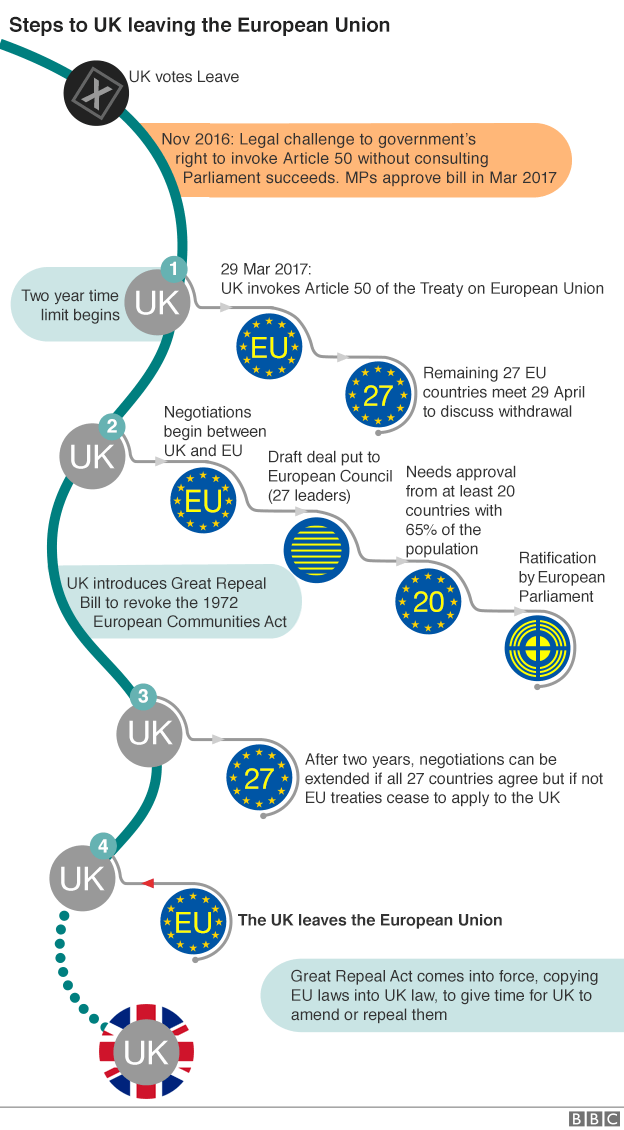
- Published27 April 2017
